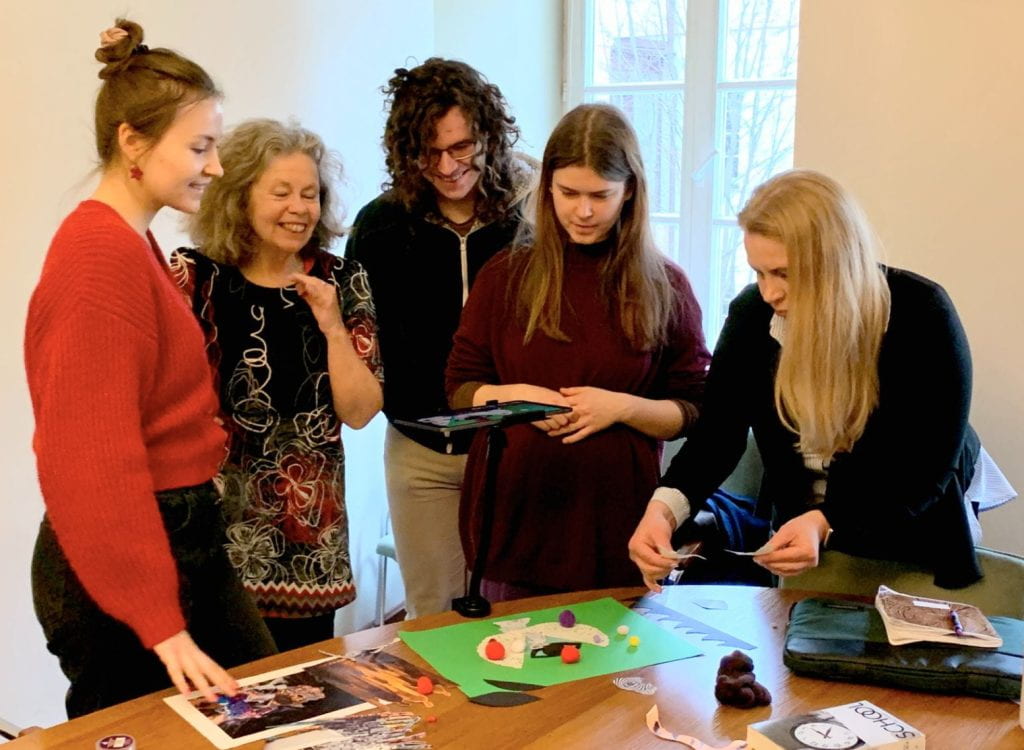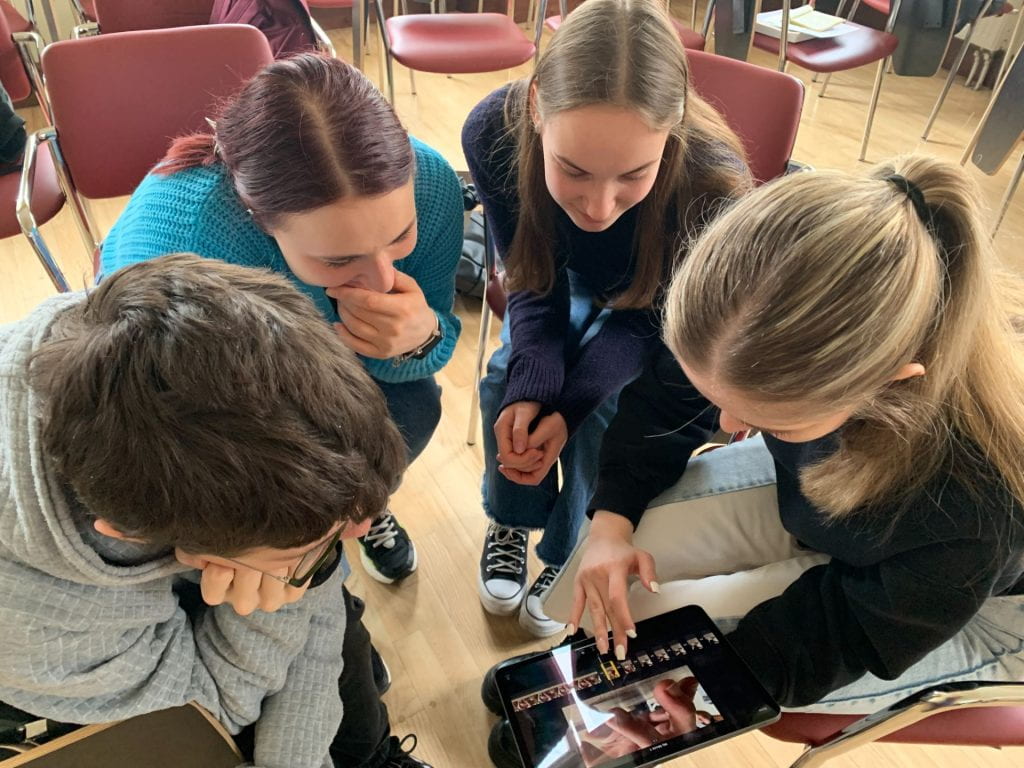MATLAB Online Courses LTI now available
By Eliot Hoving, on 13 May 2024
The Digital Learning Environment Team are pleased to announce a new MATLAB activity available on Moodle.
The MATLAB and Simulink Online Courses LTI 1.3 allows students to automatically track progress in self-paced training courses on MATLAB and Simulink. Students can move from Moodle into their MATLAB online course/s seamlessly. Courses include MATLAB for Data Processing and Visualisation, Deep Learning with MATLAB and plenty more.
You can add the activity onto any Moodle course from the activity chooser page, in the same way as you would add other activities.
Moodle course rollover for 2024/25
By Eliot Hoving, on 7 May 2024
Course administrators and tutors can now rollover Moodle courses for the 2024/25 academic year.
Please note that Lecturecast sections for the upcoming academic year 2024/25 will not to be available until the 1st of August 2024, after which the new academic year’s sections can be linked to the rolled over Moodle course.
If you need to rollover a course for the current 2023/24 academic year, then please contact IT services.
Relevant guides:
Digital Adventures in Vilnius
By rebecca.wilson, on 24 April 2024
Working in the Digital Skills Development team it is a pleasure to teach creative media sessions to students and staff at UCL, but how exciting to be able to share our sessions at Vilnius University in Lithuania.
I was invited to work with Dr Michelle Cannon, Lecturer in Digital Arts and Media in Education, UCL Institute of Education, to help plan and deliver agile film making, Soundscape creation, and stop motion animation workshops. We arrived late at night in Vilnius airport, our luggage full of iPads, stands, lights, art materials and our heads full of ideas.
Our colleagues in Vilnius University were Associate Professor Sandra Kairė, Director of the Institute of Educational Sciences and Gintė Žulytė, Education Co-ordinator of Meno Avilys (the Institute of Documentary Film Vilnius). Meno Avilys is a Lithuanian NGO, committed to promoting film and media cultures, and related educational programmes. We worked collaboratively to plan targeted workshops for their students. Our Vilnius colleagues audited the sessions with a view to further development for their new Media Education module for Erasmus students next year.
The literary stimulus we chose was Shaun Tan’s graphic novel The Arrival. Reflecting first on a text as a stimulus roots the activity thematically and conceptually and provides a springboard for creative production. The student brief was to make a 30 second film using stills, video and sound to create a moving montage inspired by themes from the text such as dislocation, longing, loneliness and wonder.
English was no barrier to communication and students were gathered from a range of disciplines including Primary Education, Childhood Pedagogy and Psychology. None of the students were familiar with practical media-making as part of their university curriculum. It was both moving and inspiring to experience the students’ enthusiasm for creative digital making.
In a short space of time, students learnt film making techniques, how to edit and incorporate sound, and how to share and critique their work. They also learnt stop motion animation techniques; making a collage of artwork to create an animated abstract visual sequence. We also shared ideas and examples using ‘Audacity’ software to demonstrate mixing layers of sound to craft engaging Soundscapes.
We facilitated a whirlwind few days of creative making and it was a pleasure to work with such articulate, creative and enthusiastic students. Our visit was a great opportunity to collaborate internationally with like-minded academics and staff to promote creative Media Education and practice-based learning experiences.
Moodle Exam guard
By Eliot Hoving, on 19 April 2024
UCL Moodle has been updated with a new feature called Exam guard.
What is it?
Exam guard will prevent users from editing their course from 10 minutes before the start of a Moodle quiz until 10 minutes after the quiz has finished. Exam guard does this by looking at the “open the quiz”/ “close the quiz” setting when a Moodle quiz is created. The course editing freeze will only apply where the Moodle quiz is open for less than 5 hours as it is designed to target Moodle quizzes being used for controlled condition exams.
A banner will appear at the top of your course when Exam guard is in effect.
Why is this required?
In the past, when users have attempted to edit and save changes to a Moodle course while a quiz is underway, it has caused serious performance issues while Moodle tries to refresh caches and implement the changes. This issue is particularly bad where a large cohort (300+) are taking the quiz, and has caused exams to be disrupted.
What do I need to do?
Exam guard will work automatically and should have no impact on the majority of workflows. Staff can still post to forums, and mark submissions in other assignments. They can also add user overrides for late minute ECs and SORA students to a quiz.
Staff will not be able to edit course settings or create or edit activities in their course while the exam is running.
Staff will no longer be able to manually release a Moodle quiz by making the quiz visible at the exam start time. This workflow is not recommended or required. A better approach is for staff to set the Moodle “open the quiz” setting to the exam start date and time when creating the quiz. Students will see the quiz item on Moodle but aren’t able to access the questions or begin the quiz before the open date and time so there is no risk your exam is released early.
MyPortfolio and Moodle integration
By i.niculescu, on 15 April 2024
You can now set up and mark MyPortfolio assignments using Moodle! MyPortfolio is UCL’s e-portfolio system, which is now integrated with Moodle assignments. This allows tutors to create assessments where students submit portfolios or pages from their MyPortfolio accounts directly via Moodle Assignments.
Staff can:
- Set up MyPortfolio as a submission type in Moodle Assignments
- Mark MyPortfolio entries and leave feedback through Moodle
Students can:
- Submit a link to their MyPortfolio work via Moodle Assignments
- Get their marks and feedback through Moodle
Important information:
1. Re-submitting MyPortfolio pages or collections after making changes
- Tutors only get access to a copy of the portfolio via Moodle Assignments. This process ensures that changes made after the deadline are not reflected in the Moodle Assignment submission.
- Students must re-submit their portfolios after editing them, as they currently need to do with all other Moodle Assignments e.g. MS Word files.
2. Using MyPortfolio across a whole academic year and/or only for formative work
- Please encourage your students to share their MyPortfolio work through Mahara. In this way you will always be able to access the latest version of their work. Because the Moodle MyPortfolio integration creates a copy of a page or collection, you will not be able to see any updates unless students re-submit their work via Moodle every time they add something or make any changes.
- If you need to mark the portfolio at the end of the year, please set up an assignment using the MyPortfolio Mahara LTI only at the end of the course, once students have completed their work.
3. Step-by-step guides
- Staff guide: how to set up and mark a MyPortfolio assignment using Moodle Assignments
- Student guide: how to submit a MyPortfolio assignment using Moodle
- Staff and students: guidance for using MyPortfolio
- Please note that ‘MyPortfolio’ will appear as ‘Mahara’ in Moodle.
If you have any questions, please email digi-ed@ucl.ac.uk.
Important Notice: Moodle groups
By Kerry, on 12 April 2024
Groups with “Hidden” or “Only see own membership” visibility are designed by Moodle to be secure so as not to disclose sensitive information.
It recently came to our attention that as a result they cannot be used when filtering assignments for markers.
If you do require groups that are filterable for markers, you will need to create new groups with group visibility set to “visible” or “only visible to members” and avoid naming them anything that could disclose they are for SORA or another specific group of students. This is because students within such a group can see who else is a member.
Any questions, please contact digi-ed@ucl.ac.uk
 Close
Close





